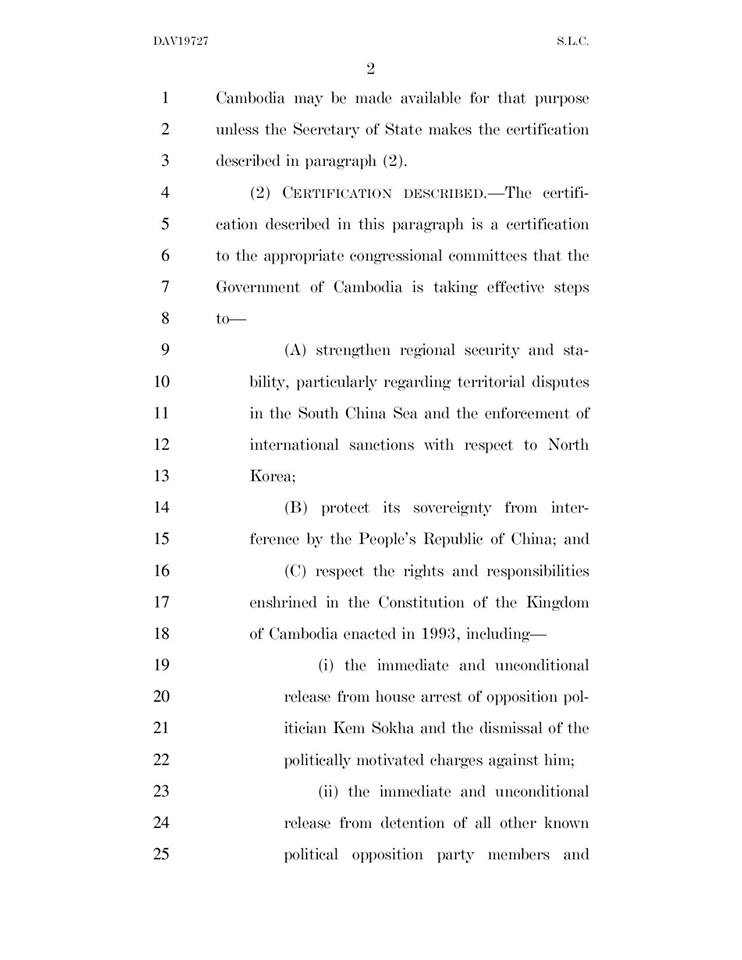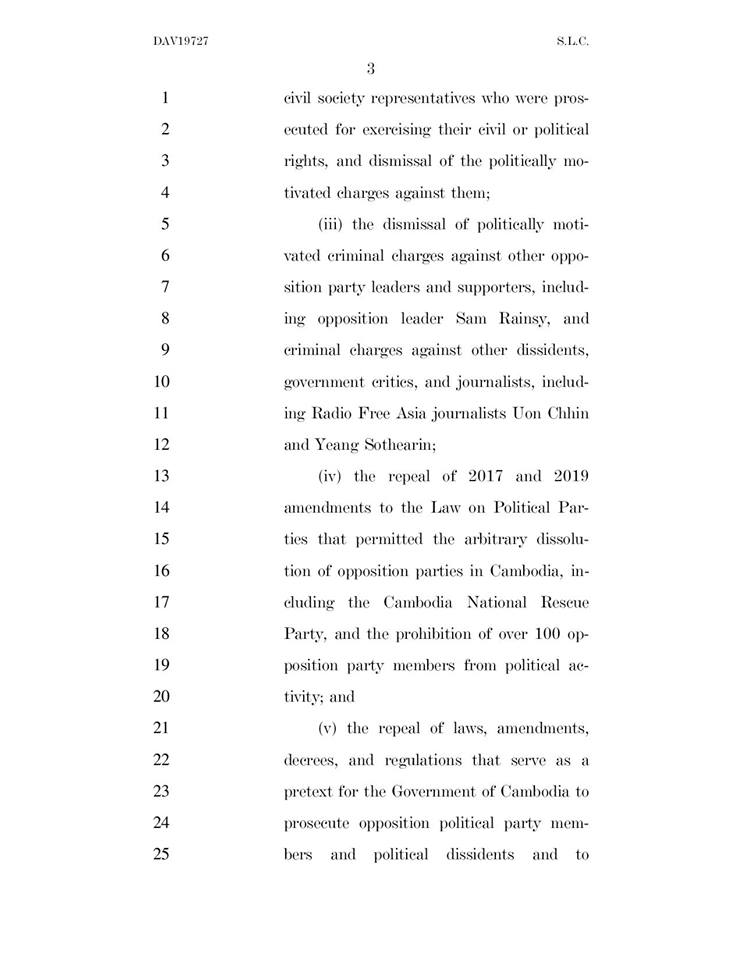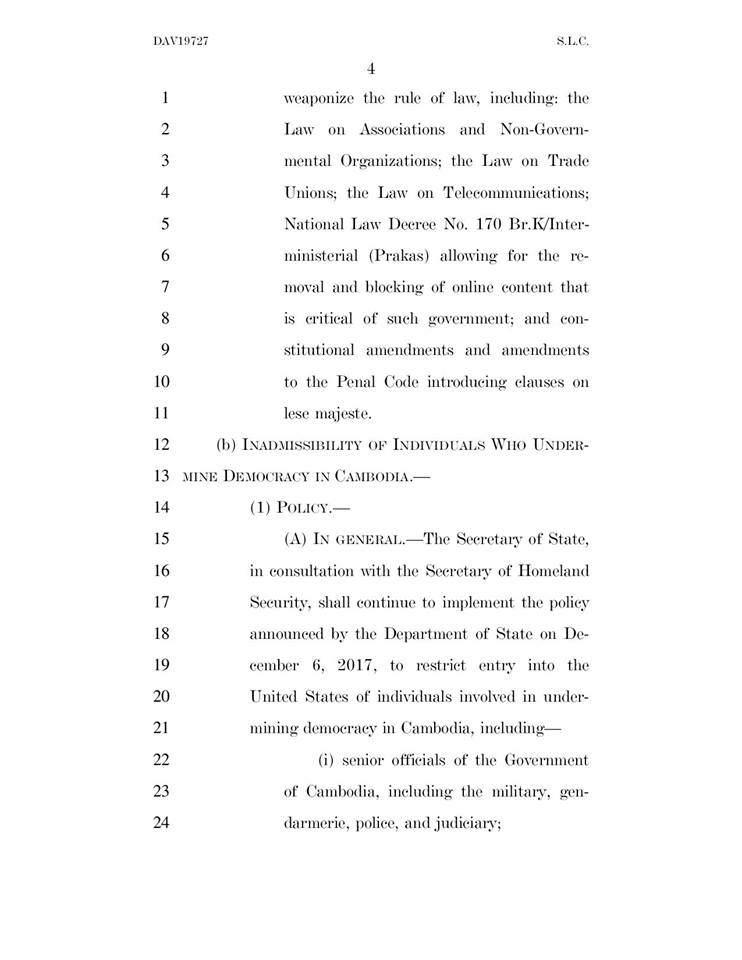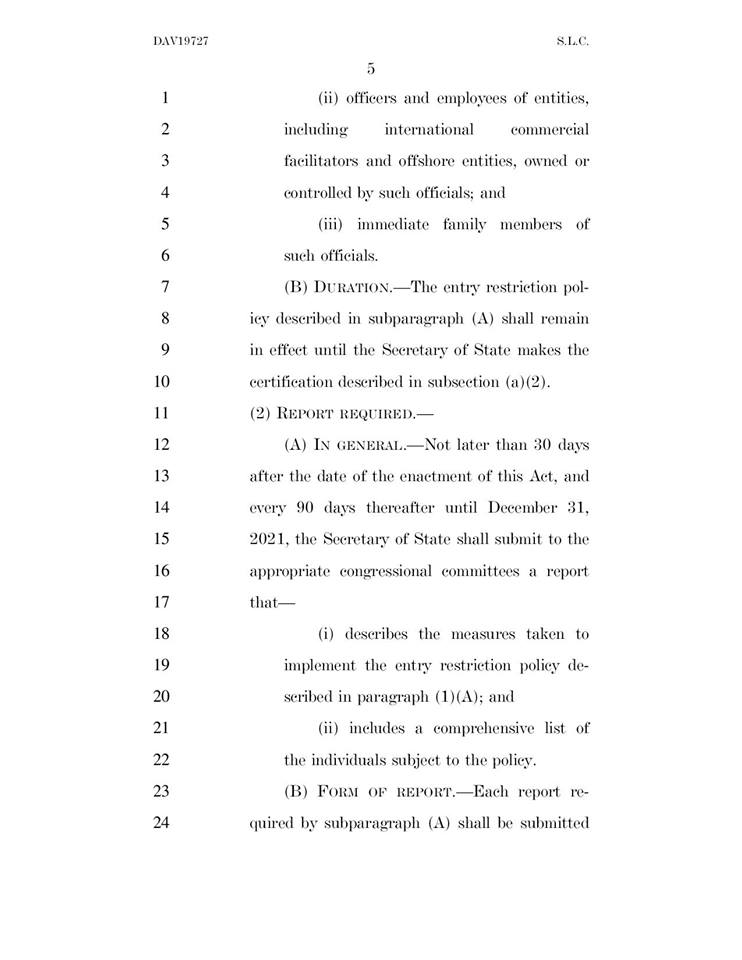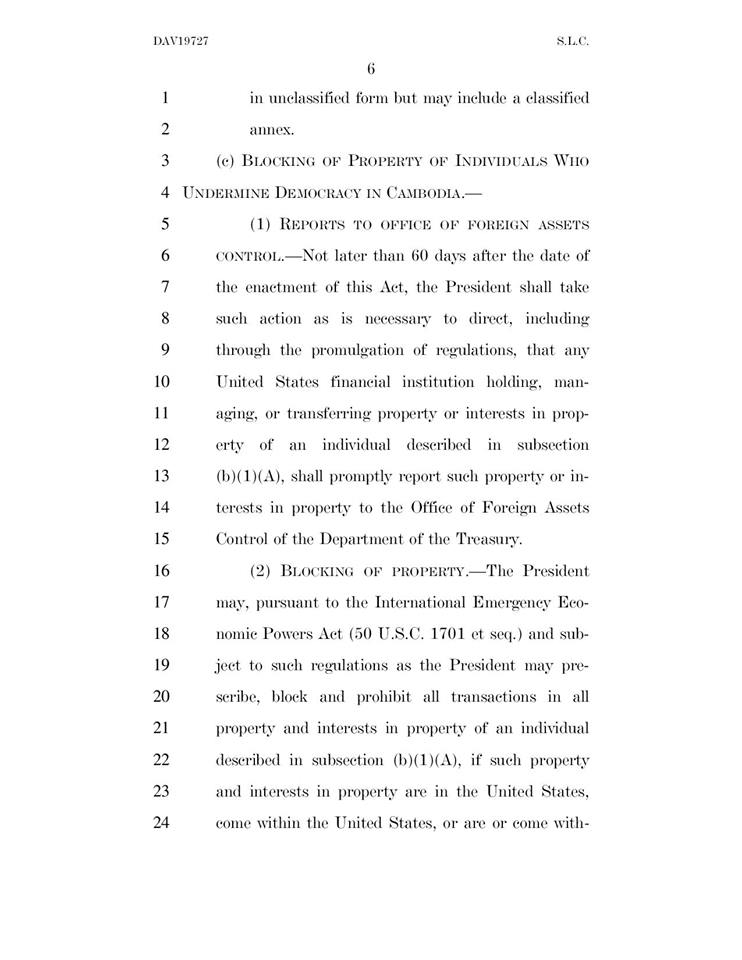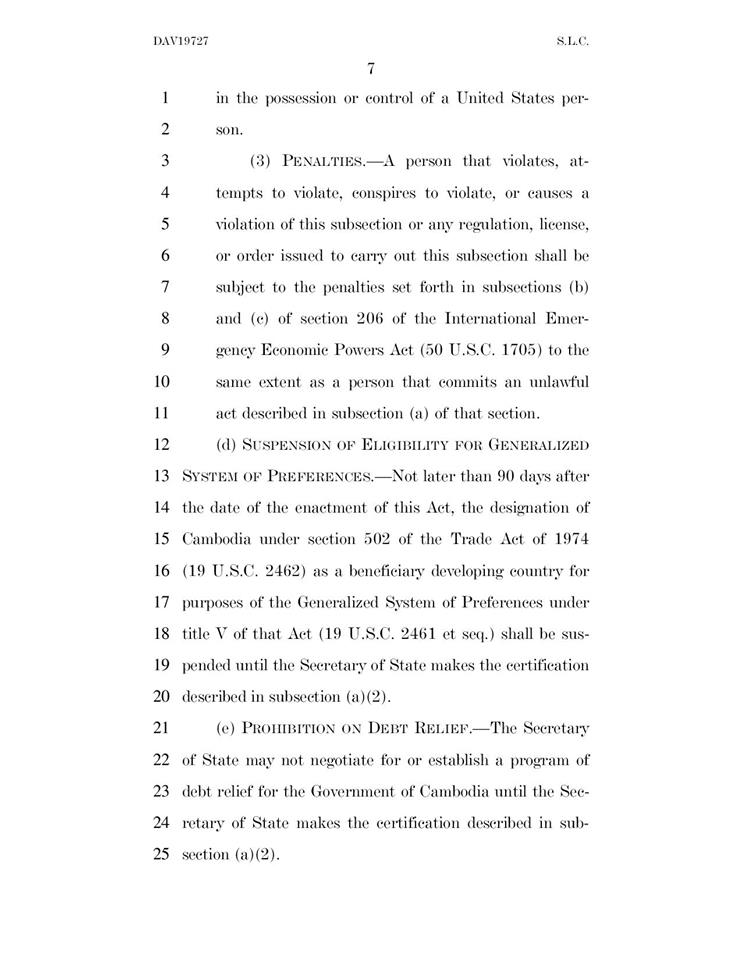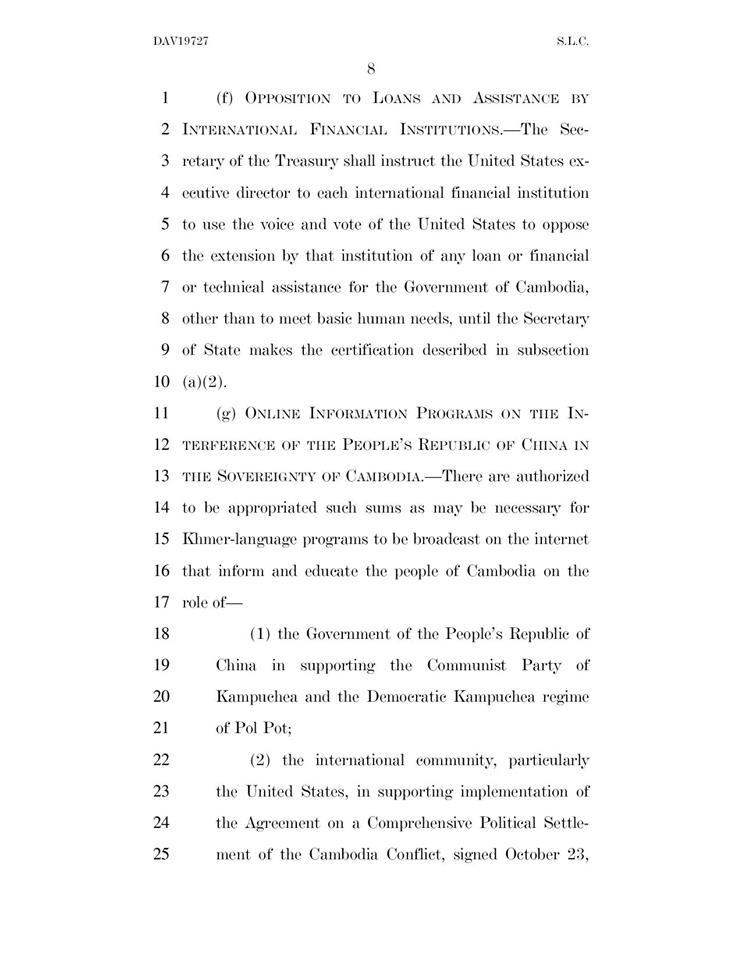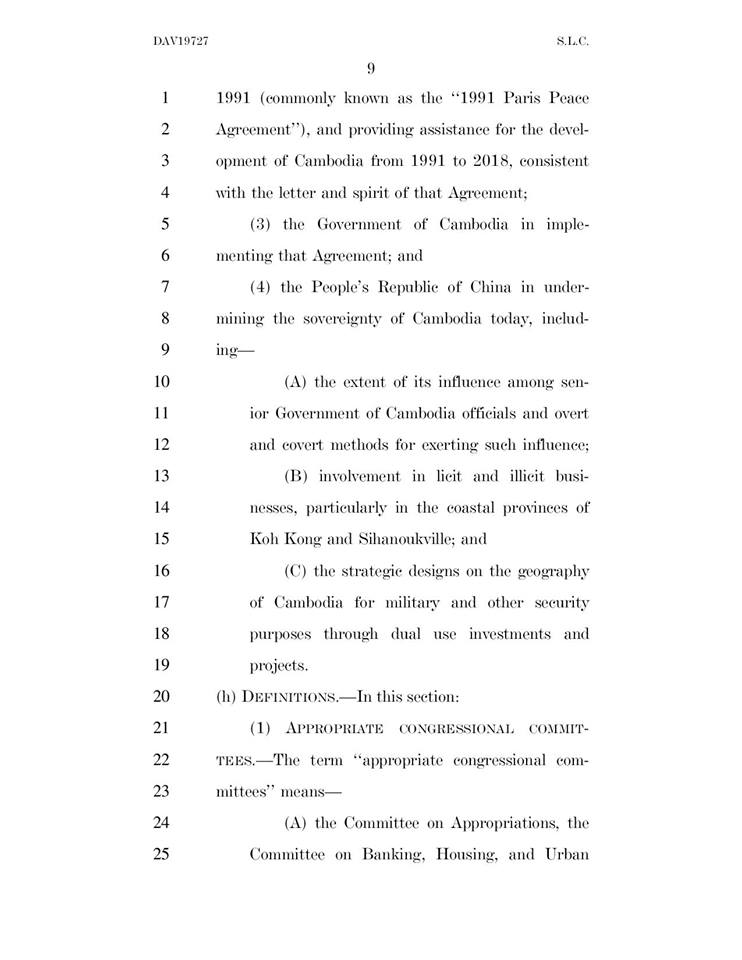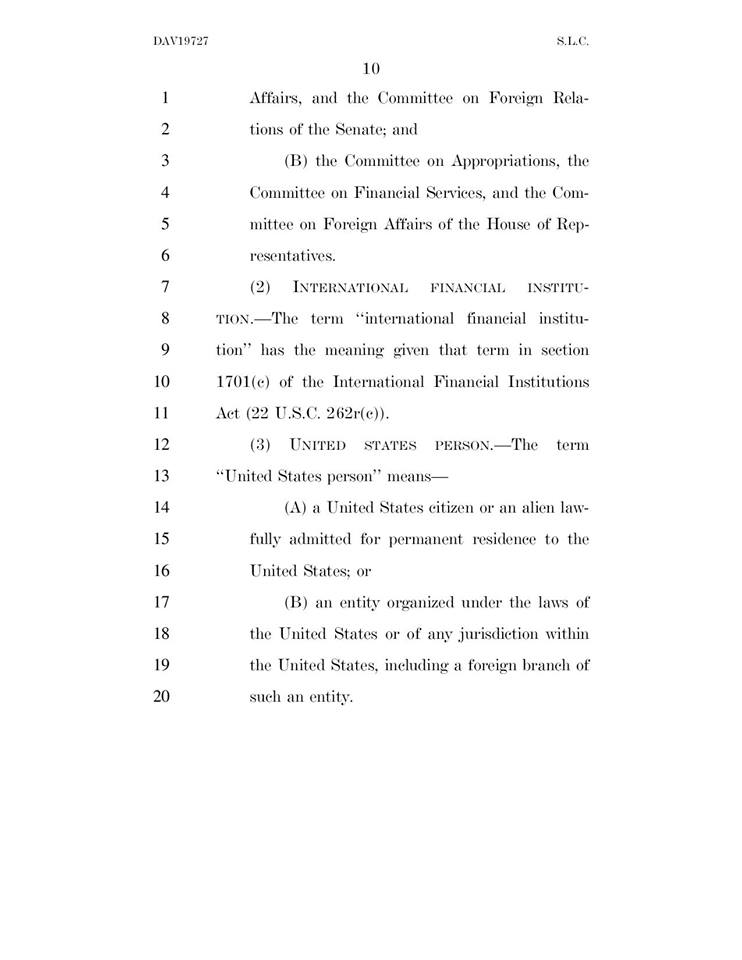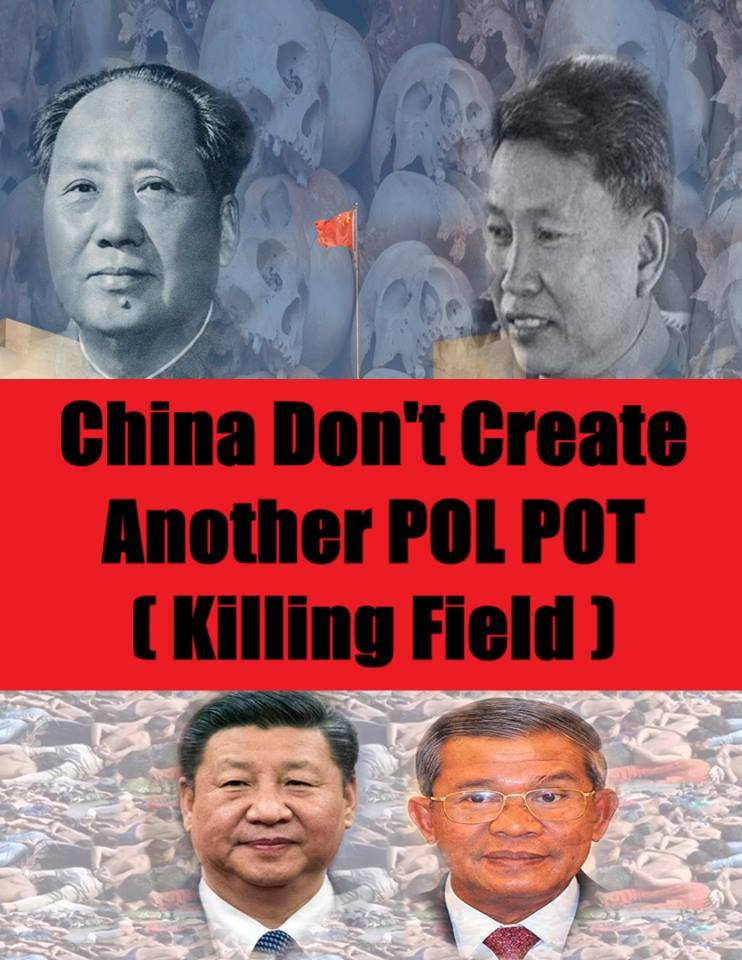May, 2019
now browsing by month
សមាជិកព្រឹទ្ធសភាអាមេរិក ស្នើច្បាប់ជំរុញការអនុវត្តកិច្ចព្រមព្រៀងសន្តិភាពទីក្រុងប៉ារីស
សមាជិកព្រឹទ្ធសភាអាមេរិក ស្នើច្បាប់ជំរុញការអនុវត្តកិច្ចព្រមព្រៀងសន្តិភាពទីក្រុងប៉ារីស
Op-Ed: RFA
លោក មួង ណារ៉េត
2019-05-21

រូបពីឆ្វេងទៅស្តាំ៖ សមាជិកព្រឹទ្ធសភាអាមេរិកលោក លិនស៊ី ហ្ក្រាហែម (Linsey Graham) លោក ឌិក ឌើប៊ិន (Dick Durbin) និង លោក ម៉ាកូ រូប៊ីអូ (Marco Rubio)គេហទំព័ររបស់ព្រឹទ្ធសភាអាមេរិក
សមាជិកព្រឹទ្ធសភាអាមេរិកបីរូប រួមគ្នាស្នើច្បាប់ថ្មីមួយ ដើម្បីគាំទ្រការអនុវត្តកិច្ចព្រមព្រៀងសន្តិភាពទីក្រុងប៉ារីស ឲ្យបានពេញលេញ។ សេចក្តីស្នើច្បាប់នេះ ត្រូវដាក់ស្នើ កាលពីថ្ងៃទី ១៤ ខែ ឧសភា តែទើបតែត្រូវបានលេចចេញជាសាធារណ: នៅថ្ងៃនេះ។
សមាជិកព្រឹទ្ធសភាទាំងបីរូបនោះ មួយរូបមកពីខាងគណបក្សសាធារណរដ្ឋលោក លិនស៊ី ហ្ក្រាហែម (Linsey Graham) ជាអ្នកផ្តួចផ្តើមស្នើច្បាប់នេះ និង គាំទ្រដោយសមាជិកព្រឹទ្ធសភាអាមេរិកពីររូបទៀត គឺលោក ឌិក ឌើប៊ិន (Dick Durbin) ខាងគណបក្សប្រជាធិបតេយ្យ និង លោក ម៉ាកូ រូប៊ីអូ (Marco Rubio) ខាងគណបក្សសាធារណរដ្ឋ។
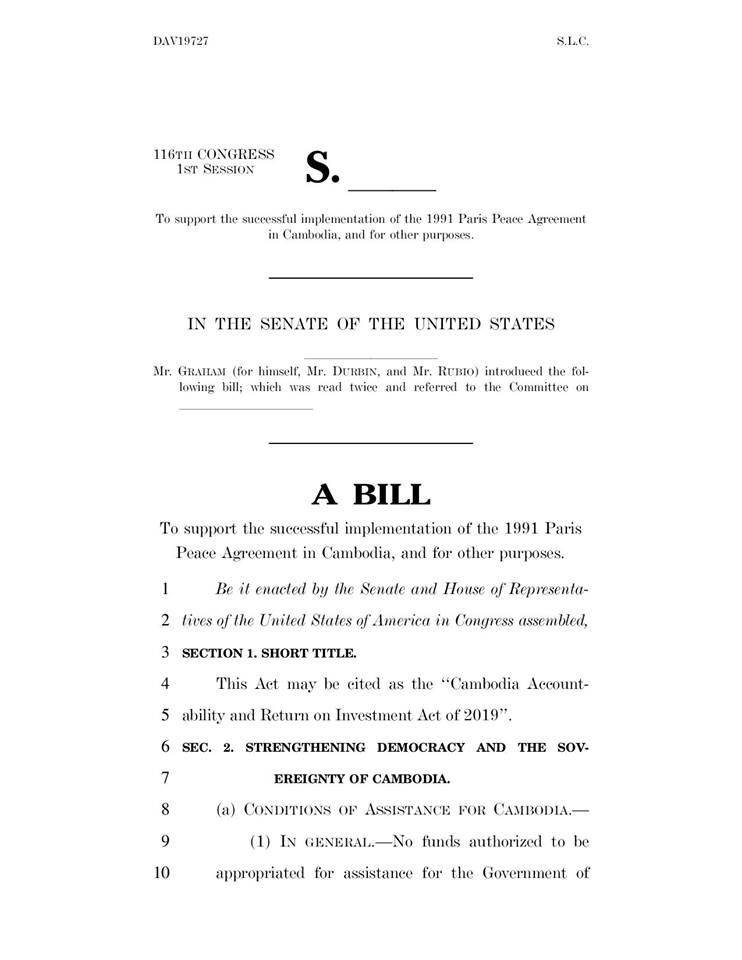
ច្បាប់ថ្មីនេះ មានឈ្មោះថា S.1468 ដែលទាមទារឲ្យរបបលោក ហ៊ុន សែន ចាត់វិធានការ ឲ្យមានប្រសិទ្ធភាព ដើម្បីការពារសន្តិសុខក្នុងតំបន់ ការពារអធិបតេយ្យភាពរបស់កម្ពុជា កុំឲ្យលុះតាមឥទ្ធិពលរបស់ចិនកុម្មុយនីស្ត និងធ្វើយ៉ាងណាឲ្យកម្ពុជា គោរពសិទ្ធិរបស់ពលរដ្ឋខ្មែរ និងការទទួលខុសត្រូវ ដូចដែលមានចែងក្នុងរដ្ឋធម្មនុញ្ញកម្ពុជា។
Read More …Champagne With Dictators
Champagne With Dictators
Posted Mon 30 Jul 2018, 9:49pmUpdated Fri 3 Aug 2018, 12:15pm
Op-Ed: Four Corners
Australia accused of failing to stand up for democracy as Cambodia descends into dictatorship.
“You don’t drink champagne with the dictators.” Opposition Leader
For more than three decades Cambodia has been ruled by one man, Prime Minister Hun Sen, who came to power in the country’s first democratic elections after the horror years of the Khmer Rouge.
Australia played a key role in the peace deal that ended the bloody civil war, but the once bright hopes for democracy have long since faded.
“We were tremendously successful in bringing peace to Cambodia, but we weren’t at all successful in bringing democracy and human rights.” Former Australian Foreign Minister Gareth Evans
Ahead of this weekend’s elections, the Hun Sen regime launched a ruthless crackdown on the political opposition and free press. On Monday, in her first story for Four Corners, reporter Sophie McNeill travels to Cambodia to confront the man whose political opponents have been imprisoned and assassinated in mysterious circumstances.
Sophie McNeil: The world says this is not a democracy…
Hun Sen: No, no, no. No this is not (right).
While steadily cementing their grip on power, Hun Sen and his family and cronies are accused of amassing enormous wealth through a corrupt and nepotistic system.
“There’s nothing that happens there that they don’t control, and that is corruption in its most egregious form. That’s what it’s like in Cambodia. It is a Mafia state.” Patrick Alley, Director Global Witness
Four Corners has uncovered evidence of how the regime’s wealth has been used to buy properties and businesses in Australia, where some of Hun Sen’s relatives have established a base for building support, sometimes through threats and intimidation.
“They allow this foreign government to intimidate our people, Australian citizens, and those who come here to study. This is not right.” Hong Lim, Victorian MP
Since 2014, Australia has granted the regime $40 million in additional aid, in return for taking some of Australia’s unwanted refugees, and the Turnbull Government upgraded ties with Cambodia last year. While the US has begun moves to sanction the regime by freezing assets and blocking visas, international observers accuse the Australian Government of cosying up to Hun Sen.
“I would like to see Australia take a strong stance, (to) come out openly and condemn the Hun Sen regime. They’re not doing that.” US Congressman
While hopes for democracy have disintegrated, China has moved to dramatically expand its presence and power in the country.
“Cambodia has the coast, Cambodia has minerals, Cambodia has forest, Cambodia has a dictator. You can buy it all.” Opposition Leader
As Hun Sen prepares to tighten his grip on power after this weekend’s elections, Cambodia’s democracy campaigners say they feel abandoned.
“Cambodia look up at the people of Australia. We envy you. You live in a world of democracy, but your Government is disappointing. Very disappointing.” Opposition Leader
Champagne with Dictators, reported by Sophie McNeill and presented by Sarah Ferguson, goes to air on Monday 30th July at 8.30 pm. It is replayed on Tuesday 31st July at 1.00pm and Wednesday 2nd August at 11.20pm. It can also be seen on the ABC NEWS channel on Saturday at 8.10pm AEST, on ABC iview and at abc.net.au/4corners.












